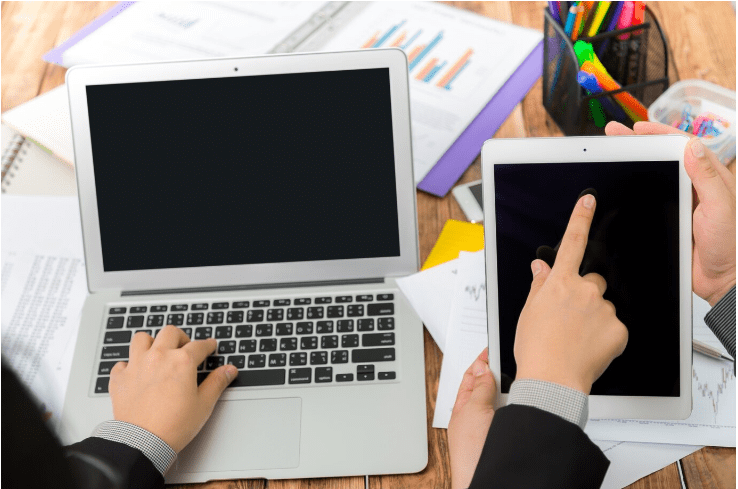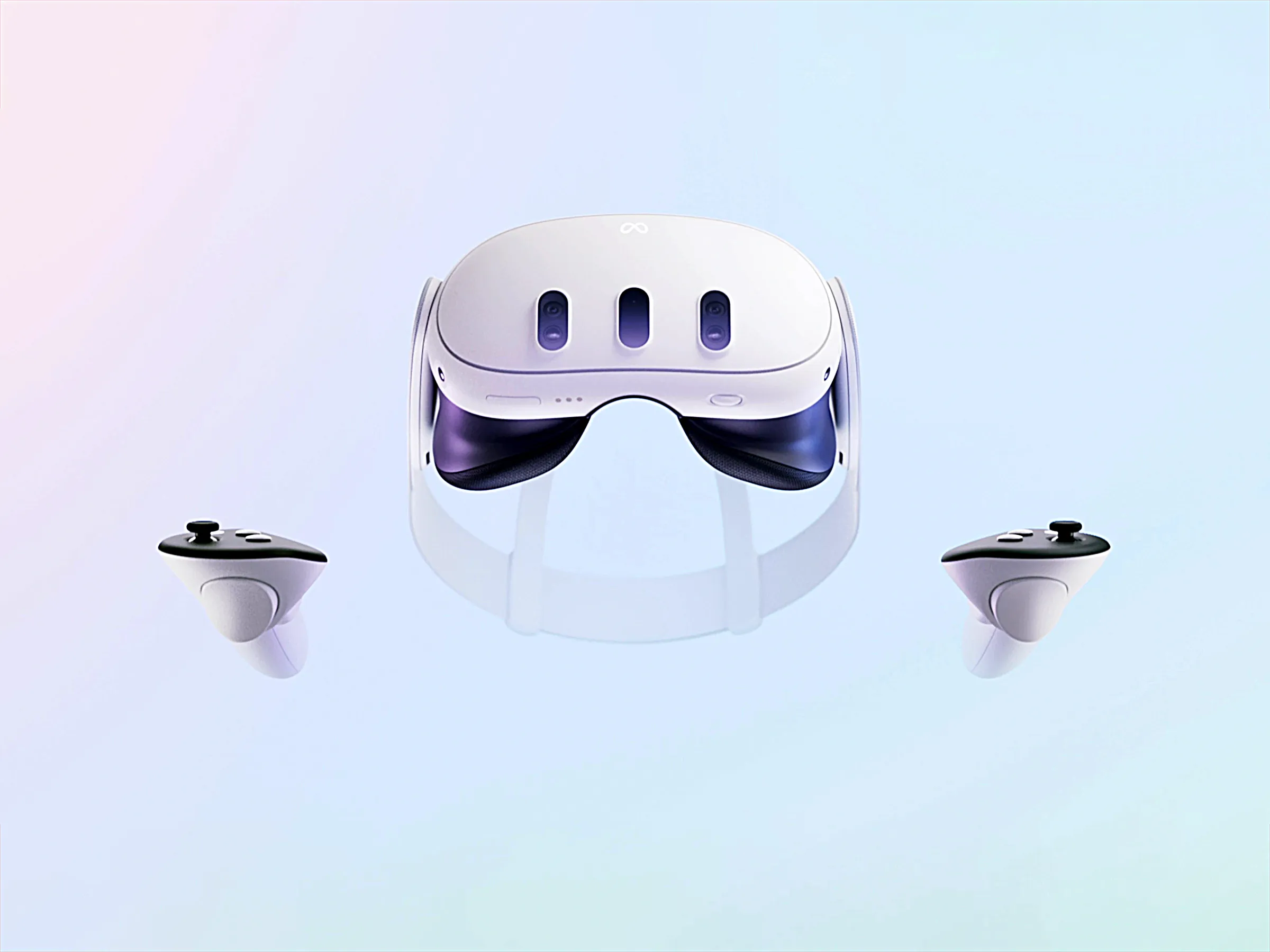Table of Contents
Laptop vs Tablet comparison

In today’s fast-paced world, choosing the right device for portable computing can be a challenging task. With advancements in technology investment, laptops and tablets have both become essential tools for varied purposes. Whether you are a student, a professional, or someone looking to boost digital productivity, understanding the strengths and limitations of both options is crucial. A comprehensive laptop vs tablet comparison is essential to make an informed decision. This device comparison will help you evaluate factors such as performance, versatility, and cost-effectiveness. In this article, we will delve into the key factors that should influence your decision to invest in either a laptop or a tablet, ensuring you select the best tool for your specific needs.
Identifying Your Needs

Before making a significant technology investment, it’s crucial to understand your specific needs and how each type of device can meet them. The laptop vs tablet comparison is essential for informed decision-making in the realm of portable computing. Different users have different requirements based on their daily activities and digital productivity goals. A comprehensive device comparison will help you evaluate which option best suits your lifestyle and work demands. Knowing what you need most in a device will guide your choice and ensure that your investment enhances your personal and professional capabilities in the ever-evolving landscape of modern technology.
In Work and Study
For many, the primary use of a device is for work or study. If your tasks involve significant amounts of typing, data analysis, or using specialized software, a laptop may be more suitable due to its robust processing power and versatile functionality. Laptops generally come with full-sized keyboards and larger screens, which can enhance productivity during extended use.
Tablets, on the other hand, offer convenience for lighter tasks such as taking notes, reading, or attending virtual classes. Many tablets now support attachable keyboards and styluses, making them more versatile for academic purposes. However, when it comes to intensive multi-tasking or running complex applications, tablets may fall short compared to laptops.
In Multimedia Consumption
When it comes to multimedia consumption such as watching videos, reading e-books, or browsing the web, both devices have their pros and cons. Tablets offer a more compact and user-friendly experience with their touch screens and lightweight design, making them ideal for casual, on-the-go entertainment.
Laptops provide larger screens, better speakers, and generally more storage capacity, catering to those who prefer a more immersive multimedia experience. The superior hardware capabilities of laptops also support high-definition content and advanced gaming, providing a richer entertainment experience overall.
In Gaming
Serious gamers often prefer laptops due to their superior graphics, processing power, and upgradeability. Gaming laptops are specifically designed to handle resource-intensive games, offering features like high refresh rate screens, advanced cooling systems, and customizable RGB lighting.
While tablets are improving in gaming capabilities with powerful processors and high-resolution displays, they are still best suited for casual gaming. Mobile apps and cloud gaming platforms are making tablets a viable option for gaming on the go, but they do not yet match the performance of high-end gaming laptops.
In Portability
If portability is your primary concern, tablets generally have the upper hand. Their slim profiles, lighter weight, and longer battery life make them easier to carry and use on the move. Tablets are perfect for frequent travelers, allowing quick access to essential apps and services without the bulk of a laptop.
While laptops have become more portable with advances in design and technology, they are still bulkier and heavier compared to tablets. However, ultrabooks and 2-in-1 laptops offer a compromise, providing a balance between portability and functionality.
Understanding Laptop Advantages

When it comes to portable computing, the laptop vs tablet comparison is a crucial consideration for anyone looking to make a smart technology investment. While tablets offer great convenience and mobility, laptops come with a set of advantages that can make them the preferable choice for various users. Understanding these benefits can help you determine if a laptop is better suited to your needs, especially when it comes to digital productivity. This device comparison is essential, as the right choice can significantly impact your work efficiency and overall computing experience.
Performance and Power
Laptops generally feature more powerful processors, larger amounts of RAM, and dedicated GPUs, making them capable of handling complex software, multi-tasking, and high-end gaming. This performance power is crucial for professionals who rely on specialized software for their work, such as video editing, 3D modeling, and software development.
Additionally, laptops often come with better cooling systems, allowing for extended periods of high-performance usage without overheating. This makes them suitable for demanding tasks that require sustained computational power.
Upgradability and Lifespan
One of the significant advantages of laptops is the ability to upgrade components such as RAM, storage, and sometimes even the GPU. This upgradability can extend the device’s lifespan, making it a more economical option in the long run.
In contrast, tablets usually come with fixed hardware, limiting their lifespan as new software demands more processing power and storage space. Laptops’ flexibility in upgrading components makes them a better long-term investment for users who need future-proofing.
Input Methods and User Experience
Laptops come with full-sized keyboards and trackpads, offering a more comfortable and efficient input experience for tasks that involve extensive typing and navigation. This makes laptops the preferred choice for writers, data analysts, and programmers.
Furthermore, laptops usually have multiple ports for connectivity, allowing users to connect external devices like monitors, keyboards, and mice. This enhances the overall user experience, making laptops a versatile tool for various professional needs.
Understanding Tablet Advantages

In the realm of portable computing, the laptop vs tablet comparison has become increasingly relevant for those considering a technology investment. Tablets have carved out their niche by offering unique features that cater to specific needs. Their design, mobility, and intuitive interfaces make them an appealing choice for certain types of users. When conducting a device comparison, it’s essential to consider how each option contributes to digital productivity. While laptops offer more traditional functionality, tablets excel in areas like touch-based interaction and ultra-portability, making the decision a nuanced one based on individual requirements and use cases.
Design and Mobility
One of the most significant advantages of tablets is their sleek design and enhanced mobility. Tablets are incredibly lightweight and portable, making them easy to carry around for on-the-go use. They are particularly useful for quick tasks that require immediate attention, such as email checking, browsing, and note-taking.
The compact design of tablets also makes them ideal for creative professionals who use stylus-based applications for drawing, designing, and photo editing. The ease of carrying a tablet around without the bulk of a laptop adds to its appeal for individuals who are constantly on the move.
Touch Interactions and App Ecosystem
Tablets primarily rely on touch-based interaction, which can be more intuitive for various tasks. This makes them especially user-friendly for activities like browsing, reading, and drawing. The availability of a vast app ecosystem on platforms like iOS and Android further enhances the usability of tablets, providing specialized applications for almost every need.
Many apps optimized for touch interfaces offer features that are not as easily accessible on laptops. This includes augmented reality (AR) applications, multi-touch gestures, and simplified user interfaces that are perfect for quick interaction and immediate feedback.
Battery Life
Tablets generally offer superior battery life compared to laptops. This extended battery life makes them an excellent choice for users who need a device that can last throughout the day without frequent recharging. For tasks like reading, watching videos, or attending online classes, tablets can often provide up to 10-12 hours of continuous usage.
The energy-efficient processors and simpler operating systems in tablets contribute to their longer battery life. This makes them especially suitable for travelers, field workers, and anyone who needs a reliable device that won’t run out of power during critical tasks.
Comparing Price Points

Price is a major factor when deciding whether to invest in a laptop or a tablet. When considering a technology investment, it’s crucial to conduct a thorough laptop vs tablet comparison to understand which device best suits your needs. By comparing the costs associated with different types of portable computing devices, you can make a more informed decision based on your budget and what you require for optimal digital productivity. This device comparison should take into account not only the initial price but also long-term value, as the right choice can significantly boost your efficiency in both personal and professional realms.
Cost of Entry Level Devices
Entry-level laptops and tablets come at varying price points. Generally, you can find entry-level tablets at a lower cost compared to entry-level laptops. Basic tablets are often priced around $100-$300, making them accessible for casual users or those on a tight budget.
Entry-level laptops, on the other hand, typically range from $300 to $600. While they are more expensive than basic tablets, they offer more powerful hardware, better build quality, and enhanced functionality, making them suitable for a broader range of tasks.
Cost of High-end Devices
High-end laptops and tablets can be significantly more expensive, but they offer advanced features and superior performance. High-end tablets, such as the iPad Pro or Microsoft Surface Pro, can range from $800 to over $1,500 depending on the configuration and accessories.
Premium laptops, including ultrabooks and gaming laptops, can cost anywhere from $1,000 to upwards of $3,000. These high-end models provide top-of-the-line specifications, exceptional build quality, and advanced features, making them suitable for demanding professional and gaming needs.
Additional Expenses (Accessories, Software, Services)
When considering the total cost, it’s important to include additional expenses such as accessories, software, and services. Tablets often require separate purchases of keyboards, styluses, and protective cases, which can add to the overall cost.
Laptops may also come with additional costs for peripherals like external monitors, docking stations, and specialized software licenses. Furthermore, subscription services such as cloud storage, productivity tools, and security software should be factored into the total cost of ownership for both laptops and tablets.
Case Studies: Laptop vs Tablet

Understanding real-world scenarios can provide valuable insights into which device may be more suitable for different types of users. When it comes to portable computing, the laptop vs tablet comparison becomes crucial for making an informed technology investment. By examining specific case studies, we can better understand the practical advantages and disadvantages of laptops and tablets in various contexts. This device comparison not only helps users choose the right tool for their needs but also highlights how each option can enhance digital productivity. Whether you’re a student, professional, or casual user, considering these factors will guide you towards the best choice for your portable computing needs.
Students: Undergraduates and Postgraduates
Undergraduate and postgraduate students often require devices for note-taking, research, and completing assignments. Tablets can be incredibly useful for taking handwritten notes, reading e-books, and accessing online resources. Their portability allows students to easily carry them to lectures and libraries.
Laptops, however, offer more robust functionality for writing essays, conducting research, and using specialized academic software. The full-sized keyboards and larger screens make them better suited for extended academic work. Students who need to run software like SPSS, MATLAB, or design programs will find laptops more capable of meeting their needs.
Professionals: Designers, Writers, Developers
Designers and creative professionals often rely on advanced software that demands high processing power and graphics capabilities, making laptops a more suitable choice. Applications like Adobe Creative Suite, AutoCAD, and 3D rendering software run more efficiently on laptops.
Writers and developers also benefit from laptops due to their ergonomic keyboards, larger displays, and support for multiple applications running simultaneously. Tablets can be useful for quick edits, reading, and brainstorming, but they generally lack the processing power and versatility required for professional-grade work.
Travelers and Digital Nomads
For travelers and digital nomads, portability and battery life are often the most critical factors. Tablets excel in this regard due to their lightweight design and long battery life. They are perfect for quick tasks, entertainment during travel, and staying connected on the go.
However, digital nomads who need to perform more intensive tasks might find laptops more suitable despite their bulkier size. Ultralight laptops and 2-in-1 devices offer a good balance, providing the functionality of a laptop with the portability closer to that of a tablet.
The choice between a laptop and a tablet should be guided by your specific needs and use-cases. In the realm of portable computing, a comprehensive laptop vs tablet comparison is essential for making an informed technology investment. Laptops offer superior performance, upgradability, and a more extensive range of functionalities, making them ideal for professional and academic work. Tablets shine in their portability, intuitive touch interfaces, and extended battery life, catering well to casual users and those constantly on the move. When considering device comparison, it’s crucial to evaluate how each option contributes to your digital productivity. By carefully considering your requirements and the strengths and limitations of each device, you can make a more informed decision that best suits your objectives and lifestyle.






